Ukrainian human rights defenders raise issue of occupied Crimea in New York
On November 27-29, ZMINA International Advocacy Officer Tetiana Zhukova together with her colleagues from the founding organizations of the Human Rights House Crimea (Crimean Human Rights Group, “Almenda” Civic Education Center, Regional Center for Human Rights) went to New York with the support of the Human Rights House Foundation and Ukrainian Helsinki Human Rights Union. Human rights activists held several meetings with diplomats of foreign countries and promoted voting for the UN resolution on human rights in Crimea.
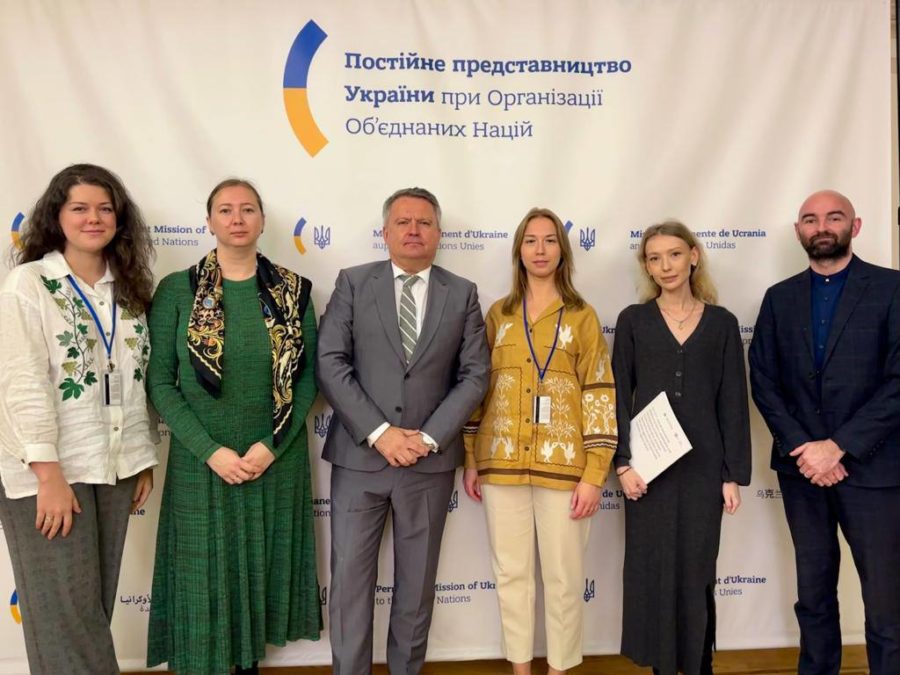 Photo: Visit participants with Permanent Representative of Ukraine to the UN Sergiy Kyslytsya. Сredit: Human Rights House Foundation
Photo: Visit participants with Permanent Representative of Ukraine to the UN Sergiy Kyslytsya. Сredit: Human Rights House FoundationHuman rights defenders had meetings with representatives of Costa Rica, Guyana, Georgia, Peru, Singapore, Slovenia, Japan, and also joined a round table meeting for 20 EU countries, met with Permanent Representative of Ukraine to the UN Sergiy Kyslytsya and the UN Department of Political and Peacebuilding Affairs.
During the meetings, the visit participants underscored the importance of keeping Ukraine on the agenda of the international community, the need to develop mechanisms for the return of civilian hostages and the repatriation of deported children, as well as the importance of bringing to justice those responsible for the aggression of the Russian Federation against Ukraine, the commission of war crimes and crimes against humanity, as well as ensuring fair reparations and reconstruction of damage done since 2014.
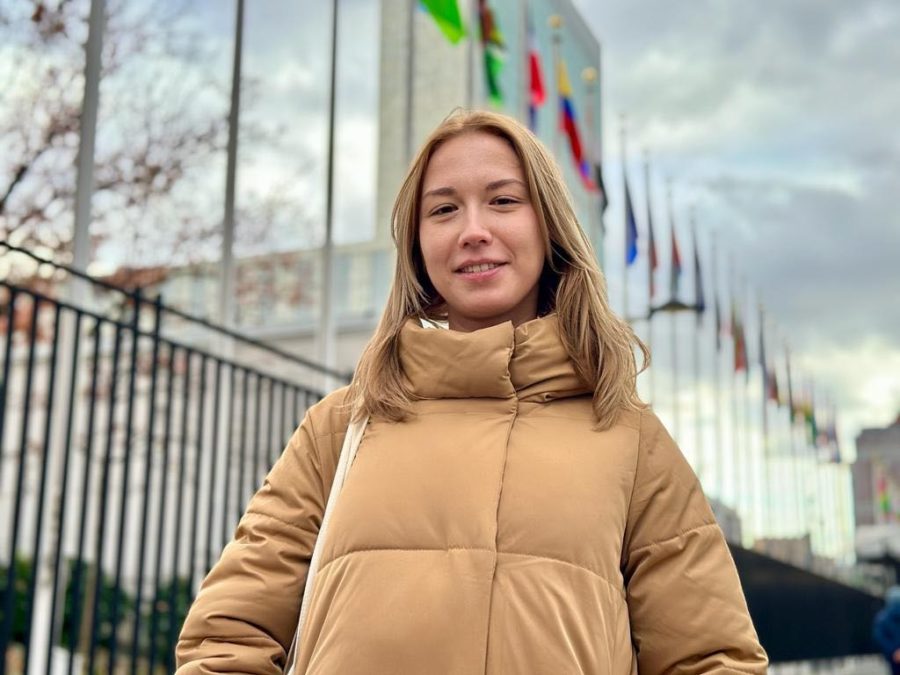 Photo: Tetiana Zhukova. Сredit: Human Rights House Foundation
Photo: Tetiana Zhukova. Сredit: Human Rights House Foundation“The years of the international community’s ineffective response to Russian aggression against sovereign states, in particular against Ukraine since 2014, partially led to the full-scale invasion felt by the entire world through threats to global food, environmental, nuclear security, inflation and supply chain disruptions. That is why it is important to show the Russians that impunity for such actions must not be expected and to talk not only about prosecution for international crimes committed by the occupiers since 2022 but also to emphasize the need for the de-occupation of Crimea and prosecution for international crimes committed since 2014,” Tetiana Zhukova said.
“New human rights violations keep occurring on the Crimean peninsula every day. All discriminatory persecutions are committed with the only goal: to eradicate disloyalty to the aggressor state. I will say more: due to the rather weak reaction of the international community to the occupation of Crimea for almost 10 years, Russia managed to change this part of Ukraine demographically, culturally, as well as in the military and economic spheres,” said Kateryna Rashevska, expert of the Regional Center for Human Rights.
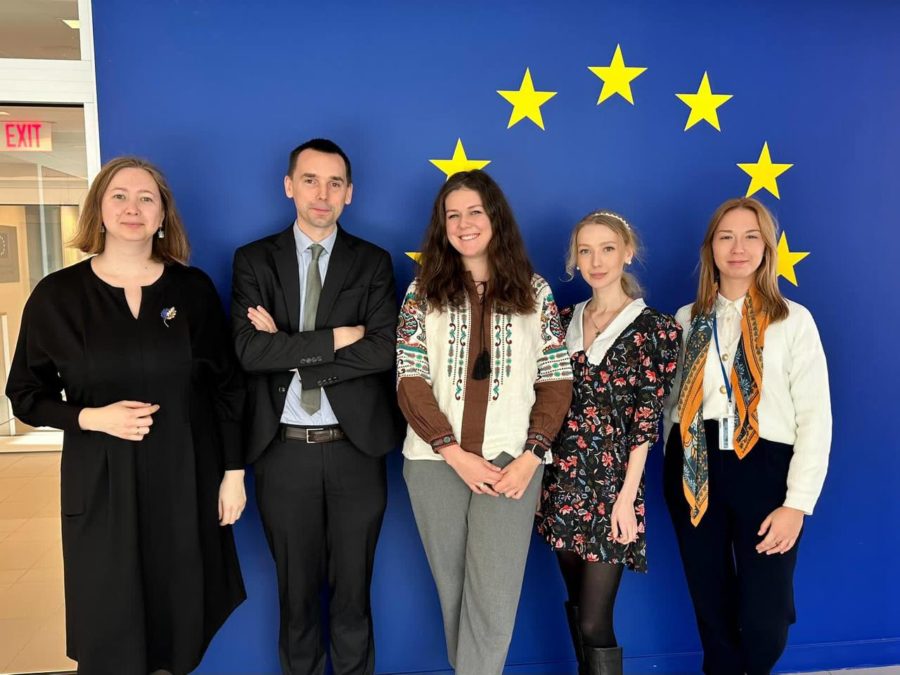 Photo: Visit participants with Ewout Stoefs, EU Delegation to the UN. Сredit: Human Rights House Foundation
Photo: Visit participants with Ewout Stoefs, EU Delegation to the UN. Сredit: Human Rights House FoundationHead of the Crimean Human Rights Group Olha Skrypnyk drew attention to the problem of large-scale persecution in the occupied territories, enforced disappearances and the capture of thousands of civilians: “Russian-occupied Crimea continues to turn into a prison. Today, we know about the specially created pre-trial detention centers No. 2 and No. 8, for which people are kidnapped from the south of Ukraine. These are hundreds and hundreds of citizens deported from the newly occupied territories of Zaporizhzhia and Kherson regions.”
It is currently known of 25,000 Ukrainian civilian hostages held by Russia, including political prisoners subjected to inhumane treatment in prison. In particular, among 186 Crimean political prisoners, 45 need medical attention and 21 are in critical condition. Because of this, two illegally convicted Ukrainian prisoners of the Kremlin – Kostiantyn Shyring and Dzhemil Hafarov – died behind bars this year.
The huge number of civilian hostages and the terrible conditions of their detention indicate the need to mobilize international efforts and create an effective mechanism for identifying hostages, monitoring their condition and returning them to Ukraine through the mediation of third countries and international organizations.
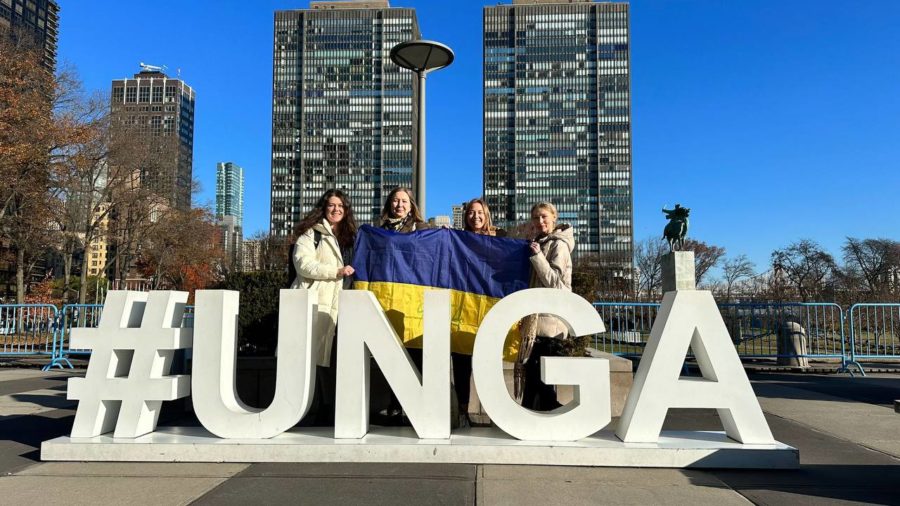 Photo credit: Human Rights House Foundation
Photo credit: Human Rights House FoundationIn the same way, a mechanism for the repatriation of Ukrainian children should be created. This was emphasized by Kateryna Rashevska: “According to the Moscow Mechanism estimates, from 2014 to 2022, Russian agents could illegally take away about 1,000 Crimean orphans for the adoption by citizens of the Russian Federation. These minors, as well as those who were forcibly relocated already after the start of the full-scale invasion, must be immediately returned home to Ukraine. To do this as soon as possible, and not to wait for years, it is necessary to finally introduce a single legal mechanism for the return, rehabilitation and reintegration of Ukrainian children with the support of the UN and the international community.”
In addition, the young generation of Ukrainians faces not only deportation but also many other human rights violations. “Since 2014, the Russian Federation has created a system to destroy the identity of children in occupied Crimea and has been purposefully militarizing and indoctrinating Ukrainian children all these years. The lack of a proper reaction to these violations led to the fact that after the full-scale invasion, the Russian Federation not only extended this system to the newly occupied territories but also significantly strengthened the propaganda of service in the armed forces of the occupying power to turn Ukrainian children into a mobilization reserve,” added Maria Sulialina, head of the “Almenda” Civic Education Center.
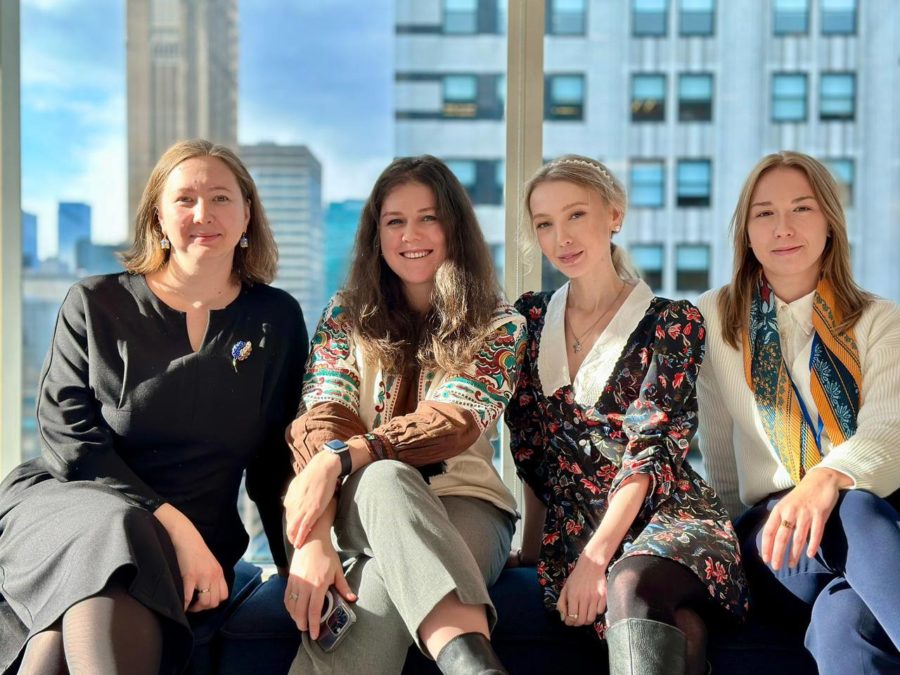 Photo credit: Human Rights House Foundation
Photo credit: Human Rights House Foundation“At a time when international crises break out in many parts of the world, keeping Ukraine, temporarily occupied territories and our fellow citizens, who have become victims of this blatant violation of all possible international norms by Russia, on the agenda of the international community is crucial for building a just global order based on international law and human rights and ready to stand up for the defence of our shared values,” Tetiana Zhukova summed up the trip.
“In the face of Russia’s full-scale invasion, advocating for human rights in Ukraine at the United Nations is essential; it amplifies the call for justice and peace on the international stage, mobilising the international community to address and counteract the profound human rights impact of the war, and to ensure ongoing solidarity with the people of Ukraine,” highlighted Matthew Jones from Human Rights House Foundation.
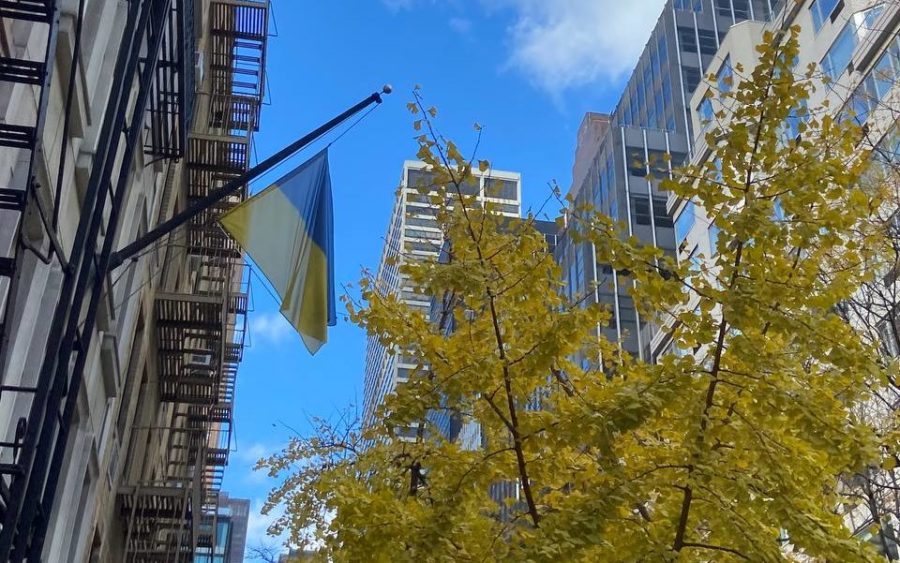 Photo credit: Human Rights Centre ZMINA
Photo credit: Human Rights Centre ZMINABackground: At the beginning of June of this year, ZMINA Advocacy Director Alena Lunova, together with representatives of the Human Rights House Crimea and its participating organizations, made advocacy trip to the USA, namely to New York and Washington, D.C., to discuss the issue of occupied Crimea
If you have found a spelling error, please, notify us by selecting that text and pressing Ctrl+Enter.















